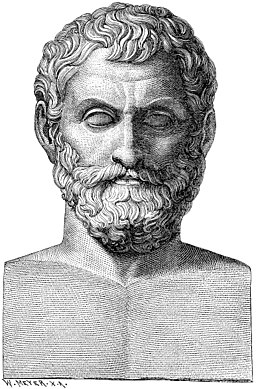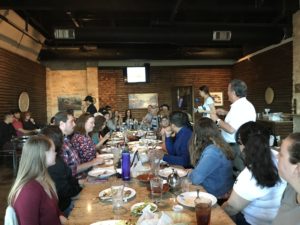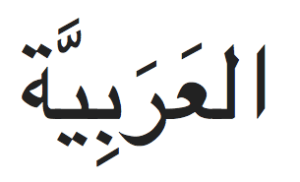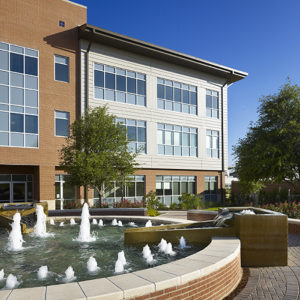Today is the traditional birthday of philosophy, May 28, 585 BCE. It’s a great story, so I’ll tell a version of how philosophy was born.

Administrative site for faculty and staff
Today is the traditional birthday of philosophy, May 28, 585 BCE. It’s a great story, so I’ll tell a version of how philosophy was born.

I recently read “Part-time students receive attention” on the TCCTA site. I want to share this article with you if you haven’t seen it, and I’d like your indulgence to raise two issues, for reflection.
First, we’ve all heard the claim that full-time students tend to graduate. Reactions to this range from a broad yawn to injunctions to sign everyone up for a full-time load the next available opportunity. Of course, we are not merely interested but also committed to student progression and completion, but I see taking comfort in this dictum to be a bit one-dimensional. After all, my Inner Philosopher urges me to say, the causality might run the other way: Graduating may cause you to take 30 hours a year.
I wrote this a while ago for another blog, but — in this season of conflict that we call the last week of the term — I thought I’d share it with you.
“We’re having a conflict, and we need help resolving it.”
This familiar sentiment often brings people in to see therapists and counselors, (and even philosophers!), and most people start off seeking conflict resolution. Let’s think about this notion of conflict resolution.
First, some preparatory observations. Suppose I ask you, What is the absence of conflict? Is it peace? Harmony? Equanimity of mind? While there’s some truth to responses in this vein, if you look a little harder at conflict, you might begin to suspect that the absence of conflict is . . . death.

Last week, I had the good fortune to attend an end-of-the-term dinner with Fahim Idais and forty or so of his Arabic students. The company was great, and the food was magnificent — we practically took over the Phoenician Resto Café. Other than the baba ganoush, one of the highlights of the evening was that I got a crash course in Arabic greetings when Fahim had all the students go around the table and introduce themselves. How’s this:
مرحباً
اسمي ماثيو
 I’m proud of our Arabic program, and of the department of foreign languages that supports and sustains it. Not many community colleges can boast about offering so many languages. The central image for our recent International Festival features most of them: Russian, Spanish, Japanese, French, Chinese, German, Italian, and Korean. ACC also teaches ASL and Latin. And English. 😉
I’m proud of our Arabic program, and of the department of foreign languages that supports and sustains it. Not many community colleges can boast about offering so many languages. The central image for our recent International Festival features most of them: Russian, Spanish, Japanese, French, Chinese, German, Italian, and Korean. ACC also teaches ASL and Latin. And English. 😉
 Did you know we offer Arabic I through IV? We have an AA in Arabic, too.
Did you know we offer Arabic I through IV? We have an AA in Arabic, too.
Why do we teach Arabic at ACC?
Because people first started talking about the concept of zero in Arabic.
Because it’s one of six official languages of the United Nations.
Because it was a major artery of culture in the Middle Ages.
Because Arabic is spoken by 313 million people today.
Because Aristotle’s works were preserved in Arabic.
Because it’s the lingua franca of the Arab world.
Because it’s the language of the Qur’an.
Because Arabic grammar is sweet.
Because ACC is happening.
Because it’s there.
Why not?
As dean, I get to experience pretty amazing things, but this time, it wasn’t just a dean thing. Rather, I was invited to this party, by one of the Arabic students. Let me put it like this:
أنا والد لويزا
Thanks, Luiza!
And thanks to you, Fahim, for everything you do for our students!
I want to take a moment to tell you how much I appreciate your work, your dedication, and your presence on our campuses and in our departments. The work you do makes our mission happen — serving students and our communities.
When I talk to colleagues about our mission as professors, I like to point out that the days of renting a classroom, professing a discipline, and conferring degrees, single-handed, ended in about AD 1300. As professors, we don’t — and can’t — go it alone. It takes all the people at the institution, top to bottom, to make our work as professors possible — especially our administrative staff. You are not a luxury! You’re on the front lines of our mission, every day.
Keep up your great work and attitude! If there’s anything I can do to make your work more effective, please let me know.
Think about your day. Whatever challenges you’re facing today, think of all the tasks you’d have to undertake first, just to go about your business, if you couldn’t rely on administrative assistants to prepare the way for you.
Now, isn’t that a pleasant thought? Personally, I would resign and try my luck as a döner vendor in Vienna.
Come back to reality now, and take a moment to thank an admin.
Each year since the beginning of Vision+Voice five years ago, I have looked forward to the reception. We unveil the posters that unite our V+V poets’ work with ACC art student creations. We hand out the coveted anthology of the year’s poems. We’re treated to our poets reading their poems, to congratulations and addresses by dignitaries like Dr. Rhodes and Dr. Cruz, thank-you’s to parents and teachers. And we have really, really good food.

This year’s reception was especially lovely, with a return appearance by Brad Richard, whose reflections on the V+V poems brought tears to my eyes. (And I wasn’t the only one.) Brad has done so much for poetry that it’s hard to know where to begin a thank-you note. Maybe this will be a start?
Two things happen in the run-up to Spring Break. Generally, we don’t speak of the two things, and we give people that “I’m in the dark” look when people do speak of the two things. But I’m going to break with centuries of Spring Break tradition and bring the two things out into the open. Continue reading “Spring break is in the air”
By now, we all know that we have to certify attendance for our classes at the beginning of each semester. And by now, many of us have gotten those irritating nag-emails about following through — even though we just got a confirmation email saying we certified! A pretty significant subset of those who have received one of those nags has insisted — rightly — that the attendance certification was done on time and blamed getting tagged with the “you didn’t follow through” message on technology — wrongly, it turns out. Continue reading “Yes, I did certify my attendance!”

Announcing the next dean’s walkabout: Round Rock Campus!
I’ll be on campus Wednesday, February 21, from 12:00 to 2:00 PM, based in Raha and Vanessa’s office (FOLA, in RRC 1204.14). Come by for a chat, or better still, show me around your favorite part of campus. See you there!
This year’s Big Read features Claudia Rankine’s Citizen. Here’s a brief introduction by Charlotte Gullick, department chair of creative writing.
Citizen: An American Lyric is an-award winning, cross-genre book and is selected for Austin Community College’s Big Read programming for Spring 2018. The New Yorker describes the work: “The poet Claudia Rankine’s new volume, her fifth, is “Citizen: An American Lyric” (Graywolf), a book-length poem about race and the imagination. Rankine has called it an attempt to “pull the lyric back into its realities.” Those realities include the acts of everyday racism—remarks, glances, implied judgments—that flourish in an environment where more explicit acts of discrimination have been outlawed. ‘Citizen,’ which has been short-listed for the National Book Award, suggests that a contemporary “American lyric” is a weave of artfully juxtaposed intensities, a quarrel within form about form.”
Are you interested in a more in-depth discussion with colleagues about Citizen? Would you enjoy sharing your time and expertise with our community?
I’m looking for five professors to participate in a mini-seminar on Rankine’s Citizen and share their thoughts and reflections with community groups as readers engage with this text. You will receive a modest stipend ($200) to thank you for your time, and you’ll commit to read Citizen, participate in a two-hour faculty seminar early next spring semester, and lead at least two group discussions in April (most likely off campus, e.g., at local coffee shops, Foundation Communities, etc.).